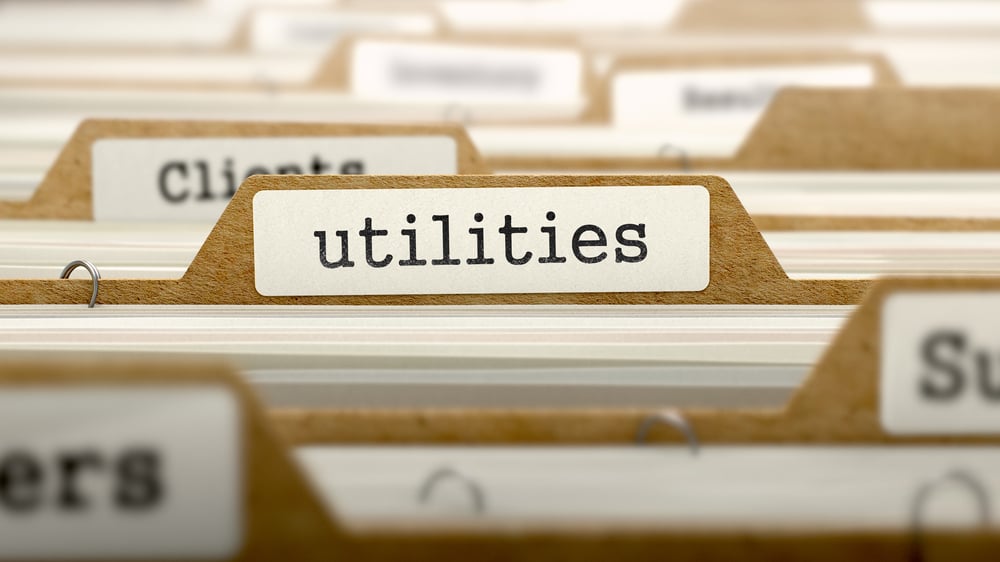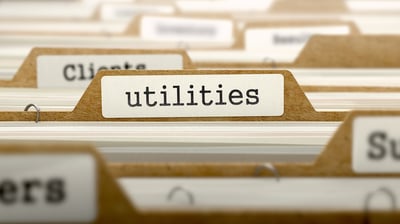What Home Insurance Actually Covers
Your home is a major investment, and anything that goes wrong on your property could result in extensive repair costs. You don’t want to find out...
Manage your everyday finances with convenient accounts, flexible cards, and personalized service designed to fit your life.
At First Federal Bank, we offer flexible mortgage solutions for almost any situation, helping you secure the right financing for your dream home.
Business banking offers secure financial management, streamlined transactions, credit options, and tools to help businesses grow efficiently and sustainably.
3 min read
First Federal Bank : October 22, 2025 10:00:00 AM EDT

 You can probably feel it in the air; fall is here! Sure, if you live in Florida, that does not mean the same as it does in other places. And winter will be different here as well. But it is a time of year many think of ways they can save on utilities. A recent CNET survey shows almost 80% of adults are stressed out about home energy costs. So, what can you do? How can you help keep your utility costs down? Here are seven tips:
You can probably feel it in the air; fall is here! Sure, if you live in Florida, that does not mean the same as it does in other places. And winter will be different here as well. But it is a time of year many think of ways they can save on utilities. A recent CNET survey shows almost 80% of adults are stressed out about home energy costs. So, what can you do? How can you help keep your utility costs down? Here are seven tips:
1. Get an electricity audit
Many electric companies offer a free audit, where they do a room-by-room examination of your home and look at your electricity bills to help determine where you're wasting energy. You can follow the recommendations to help reduce your electric bill…
Even if your electric company doesn't provide this service, you can easily perform a DIY home energy audit using the US Department of Energy website's instructions.
2. Adjust your thermostat
One of the simplest ways to reduce your electricity bill is to adjust your thermostat. According to the Department of Energy, you can save as much as 10% on your heating and cooling costs by adjusting your thermostat by 7 to 10 degrees for 8 hours per day…
A simple way to do this is to adjust your thermostat when you're either asleep or away from home. If you have a smart thermostat, you can preset your thermostat to adjust during these hours so you don't forget.
3. Turn down your water heater
Many water heater manufacturers set thermostats at 140 degrees Fahrenheit. But in reality, most households only need it set at a maximum of 120 degrees. Setting your water heater to a lower temperature can save hundreds of dollars a year.
Adjusting a water heater's temperature is a quick and easy fix. The thermostat dial on your water heater is likely near the bottom of the tank on the electric or gas control valve. Be sure to check the owner's manual for instructions to adjust it -- and if you have any questions, consult a professional technician.
4. Turn off and unplug what you aren't using
By leaving things around your house plugged in and turned on when you aren't using them, you're driving up your electric bill unnecessarily.
You can start by turning off lights when you aren't in the room or when it's light enough outside to rely solely on natural light. Multiply your light bulb's wattage by what your electricity provider charges per kilowatt to find out how much you're saving. That amount only increases with the wattage of the bulb. While it doesn't seem like much, it can add up over time.
You can also save money by unplugging appliances you aren't using. Phantom energy, the energy your appliances use when they're plugged in but not turned on, can cost an average of $100 per year.
5. Use your dishwasher
It might sound counterintuitive to suggest running an appliance to save on your electricity bill… But the Department of Energy regulates how much water modern dishwashers can use. Any dishwasher manufactured since 2013 is limited to using 5 gallons of water. If it's a compact size dishwasher, it's limited to 3.5 gallons.
You might think that surely you use less than 5 gallons of water to hand-wash your dishes. But the US Geological Survey estimates that it takes anywhere from 9 to 27 gallons of water to hand-wash a load of dishes…
6. Take advantage of off-peak rates
Electricity use tends to be higher during certain times of the day and the year. First, demand is higher in the winter and summer when people are running heaters and air conditioners. It's also higher during the daytime and evening hours.
Some electricity companies offer time-of-use plans, increasing rates during peak hours and decreasing them during off-peak hours. If you have one of these plans, you can save money by running large appliances early in the morning or late at night.
7. Change your air filters
Your air filter helps to catch any dirt, dust, pet hair and more, preventing it from making its way into your HVAC. When you don't change your air filters regularly enough, this debris gets into your HVAC system and bogs it down, reducing its efficiency. According to the Department of Energy, replacing your filters on schedule can lower your air conditioner's energy consumption by anywhere from 5% to 15%.
For more tips, read the full article here.
While you may be able to give your air conditioner a bit of a break over the coming months, there are many other ways you can save on electricity around the house. Follow some of these tips and see if your wallet feels the difference!

Your home is a major investment, and anything that goes wrong on your property could result in extensive repair costs. You don’t want to find out...

2 min read
Amid rising tuition costs and sky-high textbook prices, most college students don’t have much money to spare. However, you can pad out your income...

2 min read
Homeowner’s insurance is a necessary but costly expense to safeguard the money you’ve invested in your house. Yet you may be paying more for home...
Manage your accounts, make payments, and more.
Open an account with us.